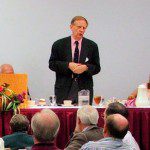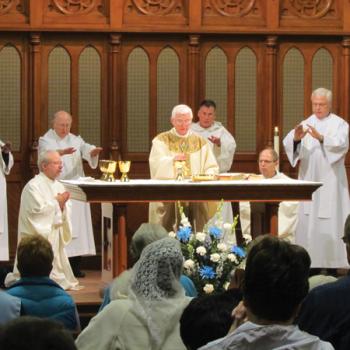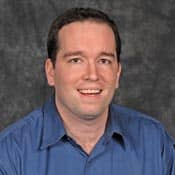She's interviewed everyone from Barack Obama to Billy Graham and her work is featured in a variety of outlets such as USA Today and the Indianapolis Star. Sarah Pulliam Bailey is the Online Editor of Christianity Today, where her interviews with newsmakers often make news themselves. She's also a monthly columnist for the Indianapolis Star and a contributor to Getreligion.org.
Today Sarah was nice enough to stop by for a chat for this week's Friday Five:
Besides your work for Christianity Today, you write for the Indianapolis Star and other outlets. Is it difficult to be a Christian journalist in a "secular" media environment?
I've had only positive experiences in "secular" media environments, but it might be different for others. Because I'm usually more in reporter-mode, I tend not to insert my personal faith in my writing. Instead, I try to illuminate how faith manifests itself for other people. For instance, I try to explore what motivates people to do certain things, like give money to a charity or vote a certain way, especially when the motivations stem from faith. One of the challenges in any column writing is acknowledging that people may not share my beliefs and finding a persuasive way to make a particular point.
You are also part of GetReligion.org, which discusses the coverage of faith in media. What does the media most often get wrong when covering religion?
It's hard to pinpoint one particular point, because "the media" is so broad. Television, for instance, can be limited because it's a visual medium. We tend to notice that religion is simply ignored or glossed over as one of the key elements in major news stories, trends, profiles, etc. Because religion is difficult to observe (it's hard to attribute things to "the hand of God"), reporters sometimes just ignore it.
You've interviewed famous people, such as Billy Graham. What's the most important thing for a journalist to remember when interviewing a celebrity?
Because celebrities often only give very little time for an interview, you can't cover everything. Reporters are always trying to break new ground, so it's hard to avoid asking questions simply to get something new out of someone. Sometimes the better questions are asking follow-ups to earlier statements: "What did you mean when you said this?" Honestly, though, celebrities usually offer expected responses, so it's often more fun to interview the pastor down the street or the scholar who has spent her life studying religion. Religious leaders see how religion plays out day-to-day and scholars offer data to help connect the dots.
You're married to a newspaper guy and your father, Russ Pulliam, is a noted journalist. I'm guessing your holiday table conversations involve deadlines and headlines?
I am quite thankful to be married to a copy editor who regularly keeps me from posting embarrassing typos. From my dad, you could say I might have inherited a little journalistic tendency to ask questions. My siblings chose very different fields—from music, law, finance, to education—so our dinner conversations cover quite a lot of ground.
If you could give one piece of advice to an aspiring journalist, what would it be?
Read a lot, especially the kind of writing you aspire to do. It's not rocket science advice, I know, and I don't pretend to be the best reader out there. But we all could use a little reminder to turn off the TV (or Hulu/Netflix) and pick up a book, magazine, or, yes, scroll through Twitter and read some blogs. Sure, Twitter and blogs have a reputation for conditioning people to be able to read 140 characters or 200 words at a time, but sometimes they lead you to that 4,000-word New Yorker piece you might not have otherwise plowed through.
Don't get hung up on writing that isn't worth your time. Many people have told me they feel like they have to finish a book even if they don't like it. There is something satisfying about finishing a book, but if it isn't worth your time or is keeping you from better reading, move on. Read about everything, not just about your main interests, things related to your job, or books you think are "serious." If you're creative, you might think of deeper reasons why stories like Rebecca Black or Harold Camping are interesting to so many people.
6/16/2011 4:00:00 AM





